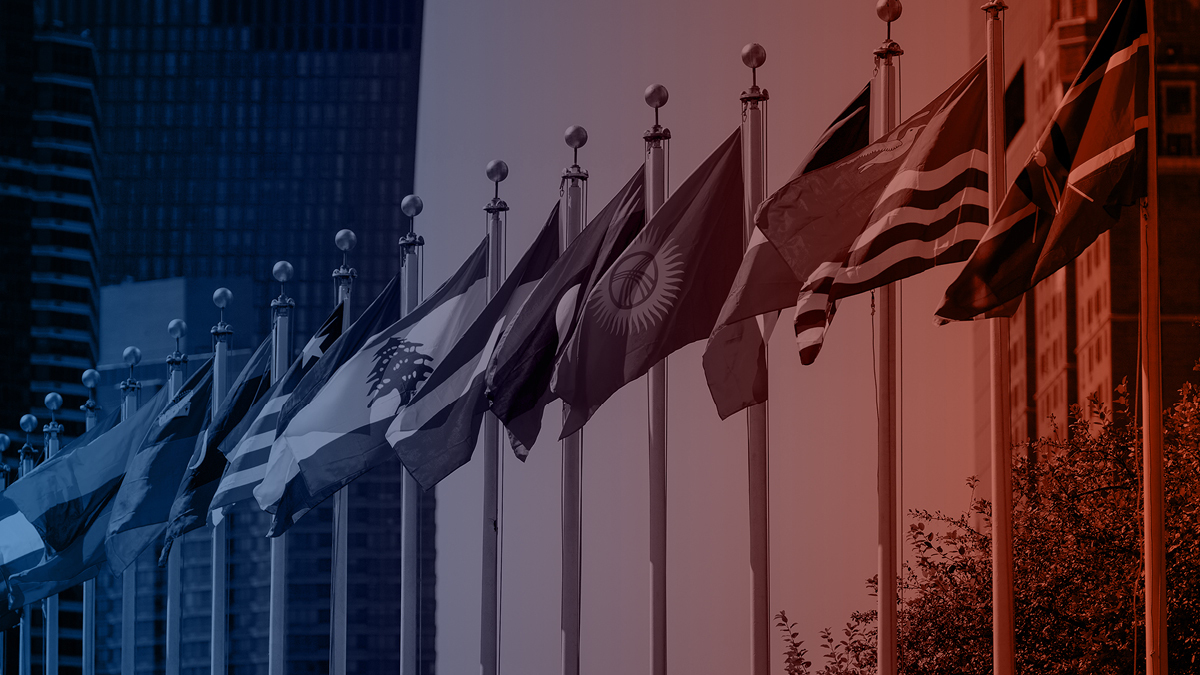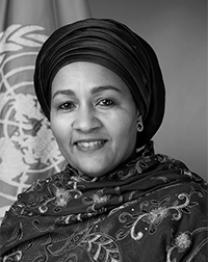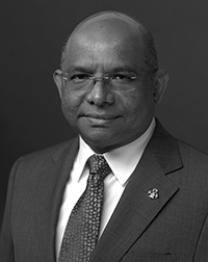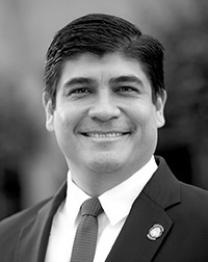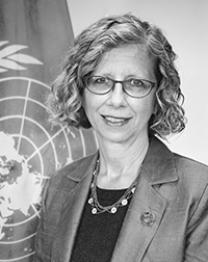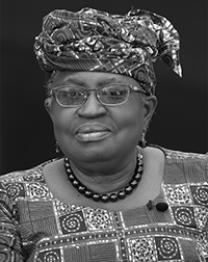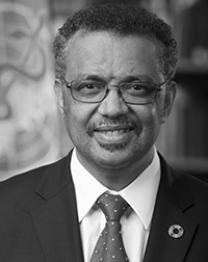Global vulnerabilities: Call from a vulnerable place
The coronavirus disease (COVID-19) crisis has made evident how interconnected and vulnerable the world is. This dialogue will address two current vulnerabilities, namely, health and climate change. These are global vulnerabilities that cannot be solved without solidarity and global action. Recovery from the current health and economic crisis critically depends on the production and distribution of vaccines, which remain highly uneven, and future sustainability depends on the capacity to find equitable solutions to the climate crisis. In this dialogue, world leaders will discuss the scale of the problem and share their vision of the solutions required, including the role of trade.
Key issues
- Health crisis and the role of trade. The first months of the current crisis exposed the risks of interconnectedness and a dependency on global supply chains. At the same time, trade has played a critical role in ensuring access to essential goods. What are the socioeconomic impacts of the health crisis and how can trade alleviate these impacts and help to avoid the further loss of development gains? What role should trade play in ensuring global health?
- Climate crisis and the role of trade. How much will climate change define the future? While the COVID-19 crisis has led to temporary reductions in carbon dioxide emissions and possibly encouraged more sustainable forms of production and consumption, the targets in the Paris Agreement Under the United Nations Framework Convention on Climate Change are far from being met. What role does trade play in addressing the climate crisis and reducing vulnerability to climate change? The developing world disproportionally experiences more adverse effects from climate change; what does this imply for their opportunities to benefit from global trade? What does it imply with regard to differentiated responsibilities?
Participants
Introductory remarks:
- Ms. Amina Mohammed, Deputy Secretary-General, United Nations
Speakers:
- Mr. Abdulla Shahid, President, Seventy-Sixth Session of the General Assembly of the United Nations, and Minister of Foreign Affairs, Maldives
- Mr. Carlos Alvarado Quesada, President, Costa Rica
- Mr. Gaston Browne, Prime Minister, Antigua and Barbuda, Chair, Alliance of Small Island States, and Chair, Caribbean Community
- Ms. Inger Andersen, Executive Director, United Nations Environment Programme
- Ms. Ngozi Okonjo-Iweala, Director General, World Trade Organization
- Mr. Tedros Adhanom Ghebreyesus, Director General, World Health Organization
Moderators:
- Mr. Peter Okwoche, Senior Broadcast Journalist, BBC
- Ms. Sharon Marshall, Senior Broadcast Journalist and Communications Specialist
Ms. Amina J. Mohammed is the Deputy Secretary-General of the United Nations and Chair of the United Nations Sustainable Development Group.
Prior to her appointment, Ms. Mohammed served as Minister of Environment of the Federal Republic of Nigeria where she steered the country’s efforts on climate action and efforts to protect the natural environment.
Ms. Mohammed first joined the United Nations in 2012 as Special Adviser to former Secretary-General Ban Ki-moon with the responsibility for post-2015 development planning. She led the process that resulted in global agreement around the 2030 Agenda for Sustainable Development and the creation of the Sustainable Development Goals.
Ms. Mohammed began her career working on the design of schools and clinics in Nigeria. She served as an advocate focused on increasing access to education and other social services, before moving into the public sector, where she rose to the position of adviser to four successive Presidents on poverty, public sector reform, and sustainable development.
Ms. Mohammed has been conferred several honorary doctorates and has served as an adjunct professor, lecturing on international development. The recipient of various global awards, Ms. Mohammed has served on numerous international advisory boards and panels.
Abdulla Shahid is a Maldivian politician who has served as the Minister of Foreign Affairs for the Maldives since 2018. He is currently President of the Seventy-Sixth Session of the United Nations General Assembly. Shahid is the first Maldivian politician to become the President of the General Assembly.
President Carlos Alvarado is the 48th President of the Republic of Costa Rica. He was inaugurated into office on May 9, 2018. He was born in San José, Costa Rica on January 14, 1980, and is a professor, politician and author. He studied journalism at the University of Costa Rica, and holds a master’s degree in Political Science from the same university and has a master’s degree in Development Studies from the University of Sussex in England.
President Alvarado is an expert in communication, public policy and public-private partnerships with five years of experience in political communication and parliamentary advisory. He has taught communication at the School of Social Science at the University of Costa Rica and the Latina University of Costa Rica. He also served as an advisor to the Citizen Action Party's group in the Legislative Assembly of Costa Rica from 2006 to 2010.
During the Solís Rivera administration, Alvarado served as Minister of Human Development and Social Inclusion and Executive President of the Joint Social Welfare Institute, institution charged with combating poverty and giving state aid to the population of scarce resources. Then in 2016, Alvarado was appointed Minister of Labor and Social Security.
Inger Andersen is Under-Secretary-General of the United Nations and Executive Director of the United Nations Environment Programme.
Between 2015 and 2019, Ms. Andersen was the Director General of the International Union for Conservation of Nature (IUCN).??Ms. Andersen has more than 30 years of experience in international development economics, environmental sustainability, strategy and operations.
For 15 years at The World Bank, Ms. Andersen held several leadership positions including Vice President of the Middle East and North Africa; Vice President for Sustainable Development and Head of the CGIAR Fund Council. Prior to the World Bank, Ms. Andersen worked for 12 years on drought, desertification; and water management at the United Nations including at the UN Sudano-Sahelian Office and UNDP.
Dr Ngozi Okonjo-Iweala is the Director-General of the World Trade Organization (WTO). She is an economist and international development expert with over 30 years of experience.
She was Chair of the Board of Gavi, the Vaccine Alliance (2016 – 2020), the African Risk Capacity (2014 – 2020) and Co-Chair of The Global Commission on the Economy and Climate. Previously, she served as Senior Advisor at Lazard and sat on the Boards of Standard Chartered PLC and Twitter Inc.
Dr Okonjo-Iweala was appointed as an AU COVID-19 Special Envoy and WHO COVID-19 Special Envoy. Dr Okonjo-Iweala served twice as Nigeria’s Finance Minister (2003-2006, 2011-2015), the first woman to hold the position, and spent a 25-year career at the World Bank rising to the No.2 position of Managing Director.
In 2020 Dr Okonjo-Iweala was named Forbes African of the Year. She has been ranked by Fortune as one of the 50 Greatest World Leaders (2015) and by Forbes as one of the Top 100 Most Powerful Women in the World consecutively for four years. She holds a Bachelor’s in Economics from Harvard University and a PhD from the Massachusetts Institute of Technology.
Dr Tedros Adhanom Ghebreyesus was elected WHO Director-General for a five-year term by WHO Member States at the Seventieth World Health Assembly in May 2017. In doing so, he was the first WHO Director-General elected from among multiple candidates by the World Health Assembly, and was the first person from the WHO African Region to head the world’s leading public health agency.
Born in the Eritrean city of Asmara, Dr Tedros graduated from the University of Asmara with a Bachelor of Biology, before earning a Master of Science (MSc) in Immunology of Infectious Diseases from the University of London, a Doctorate of Philosophy (PhD) in Community Health from the University of Nottingham and an Honorary Fellowship from the London School of Hygiene and Tropical Medicine.
Following his studies, Dr Tedros returned to Ethiopia to support the delivery of health services, first working as a field-level malariologist, before heading a regional health service and later serving in Ethiopia’s federal government for over a decade as Minister of Health and Minister of Foreign Affairs.
As Minister of Health from 2005 to 2012, he led a comprehensive reform of the country’s health system, built on the foundation of universal health coverage and provision of services to all people, even in the most remote areas.
Under his leadership, Ethiopia expanded its health infrastructure, developed innovative health financing mechanisms, and expanded its health workforce. A major component of reforms he drove was the creation of a primary health care extension programme that deployed 40 000 female health workers throughout the country. A significant result was an approximate 60% reduction in child and maternal mortality compared to 2000 levels.
As Minister of Foreign Affairs from 2012 to 2016, he elevated health as a political issue nationally, regionally and globally. In this role, he led efforts to negotiate the Addis Ababa Action Agenda, in which 193 countries committed to the financing necessary to achieve the Sustainable Development Goals.
Prior to his election as Director-General of WHO, Dr Tedros held many leadership positions in global health, including as Chair of the Global Fund to Fight AIDS, Tuberculosis, and Malaria, Chair of the Roll Back Malaria Partnership, and Co-chair of the Partnership for Maternal, Newborn and Child Health Board.
After taking office as WHO Director-General on 1 July 2017, Dr Tedros initiated the most significant transformation in the Organization’s history, which has generated a wide range of achievements.

